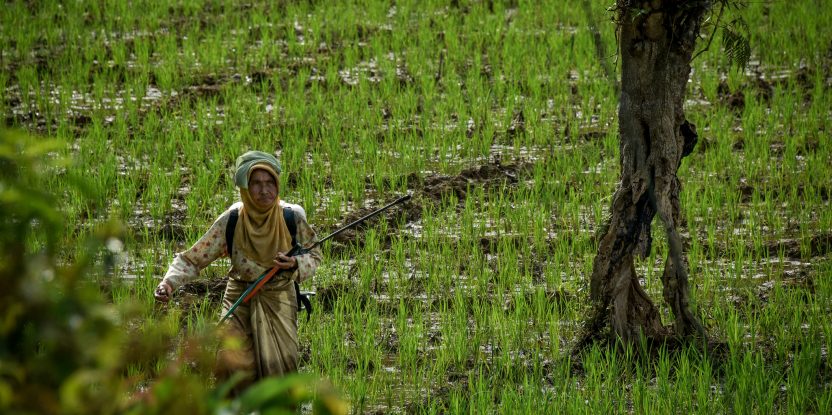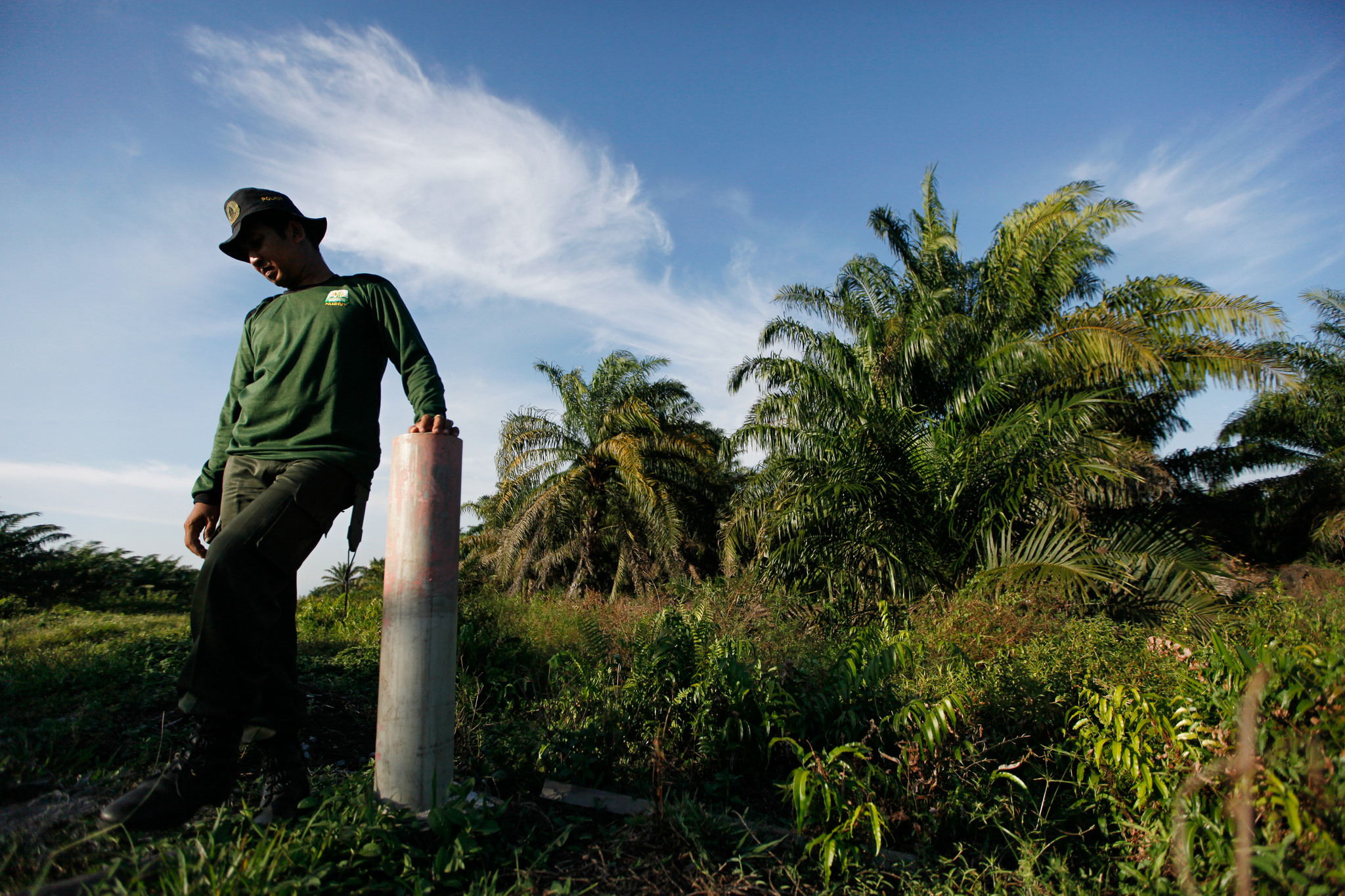
In the last decade, ambitious initiatives have been launched to address climate change and development – the Paris Agreement and the Reduction of Emissions from Deforestation and Forest Degradation (REDD+) are two. However, projects borne from these programs have often been met with suspicion and protest on the ground.
To better understand why, researchers at the Center for International Forestry Research (CIFOR) and the Dala Institute in Indonesia set out to examine why some REDD+, conservation and payment for environmental services (PES) projects lack legitimacy among communities; how that sets them up for failure; and what could be done differently.
The research, which was undertaken as part of CIFOR’s Global Comparative Study on REDD+, used data collected from more than 700 interviews concerning land use change in five countries: Indonesia, Mexico, Peru, Tanzania and Vietnam.
Lead author of the paper and CIFOR consultant Rodd Myers notes that “multi-level governance is about a range of actors influencing [land use] change – not only the government.”
Scientists gauged the views of local to national governments, but also those of actors from local communities, companies, NGOs and indigenous peoples’ organizations between 2013 and 2015.
FAIR PLAY
Benefit-sharing is a central tenet of REDD+ projects and was also present in most of the initiatives studied by the research. As it turns out, its implementation was also a primary source of conflict.
Benefit-sharing schemes are aimed at either compensating locals for losses – e.g. restricting access to a conservation areas, but giving seedlings to plant on farmland – or incentivizing behavior-change – e.g. developing livelihood options that avoid deforestation.
Such schemes are one way of addressing what environmental justice literature calls ‘distributive notions of justice’, which use financial and economic considerations to determine what is ‘fair’, explains Myers. There are other, more political notions of justice that are less considered because they are harder to implement, and coined as being ‘messy’.
On the ground, though, distributive justice faces a major challenge: “Project implementers and communities did not always have the same interpretation of what is equitable or fair,” states the paper.
Hence, “initiatives that failed to take local interpretations of equity into account were more contested” because they were seen as unjust.
In the case of REDD+, activists often demand that land tenure rights be clarified and secured before projects move ahead. In Indonesia’s West Kalimantan province for instance, communities refused benefit-sharing and compensation payments because, from their perspective, they would mean accepting national authority over what they claimed was their customary land.
If distributive justice is not enough to make stakeholders coalesce around a project of land use change – to see it as legitimate and just – what is?
According to Myers, who is also a senior researcher at the Dala Institute, initiatives should be paying a lot more attention to the trickier, but crucial, political dimensions of justice, such as recognition of rights (most notably access to land and resources) and representation in decision-making processes.
Upon examining initiatives to change land use practices, the study found that several of them “demonstrate clearly flawed processes, including for obtaining consent, as well as confusion and lack of transparency that affected the overall legitimacy of the project.”
A number of initiatives failed to sufficiently recognize cultural practices and territorial claims, while failures of representation included a lack of power in decision-making, including “coerced or extremely limited participation for so-called consent.”
CLEANING UP THE MESS
Global initiatives such as REDD+ and the Paris Agreement can only move forward with the consensus of a range of multilateral agencies and states.
That means project implementers try to smooth over conflict, avoid the ‘politics’ of political notions of justice and focus more on technical approaches to project design and implementation, says Anne Larson, CIFOR Principal Scientist and coordinator of the research.
This, suggests the paper, may be the reason why a number of projects get stuck in a vicious cycle and set themselves up for failure. The authors propose a conceptual model that links their findings on project implementation with environmental justice literature to explain the messy results on the ground.
“Projects that fail to incorporate representation and recognition justices – because of their inherently political nature – are seen as illegitimate by local communities,” explains Myers. That dissatisfaction leads to ‘messiness’ in governance systems, often showing itself in the forms of protest and conflict.
When projects address these deep-seated problems only with technical responses, they perpetuate the problem. Similarly, trying to placate political customary claims with distributive solutions such as benefit-sharing schemes also backfires.
From Myers’ perspective, global initiatives need to revisit the notions of justice that inform project design if they are to succeed in the field. REDD+, conservation and PES initiatives are sometimes “turned into these highly technocratic checkbox exercises, where, what is really needed, is a profound willingness to understand different perspectives.”
“Accountability and showing results is all-important, but it is often done at the expense of recognizing local people’s power positions,” he says.
According to the article, REDD+ presents an opportunity to change the ways in which organizations and policy-makers consider justice. They can do this by better integrating recognition and representation with distributive justice, thus leading to more legitimate governance arrangements.
“It means changing the way we think about local communities. It is not about giving them fair benefits from our project ideas or treating them as beneficiaries. It is about seeing them as rights-holders and decision-makers, as full partners in the search for transformational change,” says Larson.
“Global solutions that try to address local issues tend to bypass this, but they may need to start thinking about more decentralized approaches to get to their objectives, which may be noble ones,” Myers says.
This research is part of CIFOR’s Global Comparative Study on REDD+.
We want you to share Forests News content, which is licensed under Creative Commons Attribution-NonCommercial-ShareAlike 4.0 International (CC BY-NC-SA 4.0). This means you are free to redistribute our material for non-commercial purposes. All we ask is that you give Forests News appropriate credit and link to the original Forests News content, indicate if changes were made, and distribute your contributions under the same Creative Commons license. You must notify Forests News if you repost, reprint or reuse our materials by contacting forestsnews@cifor-icraf.org.


